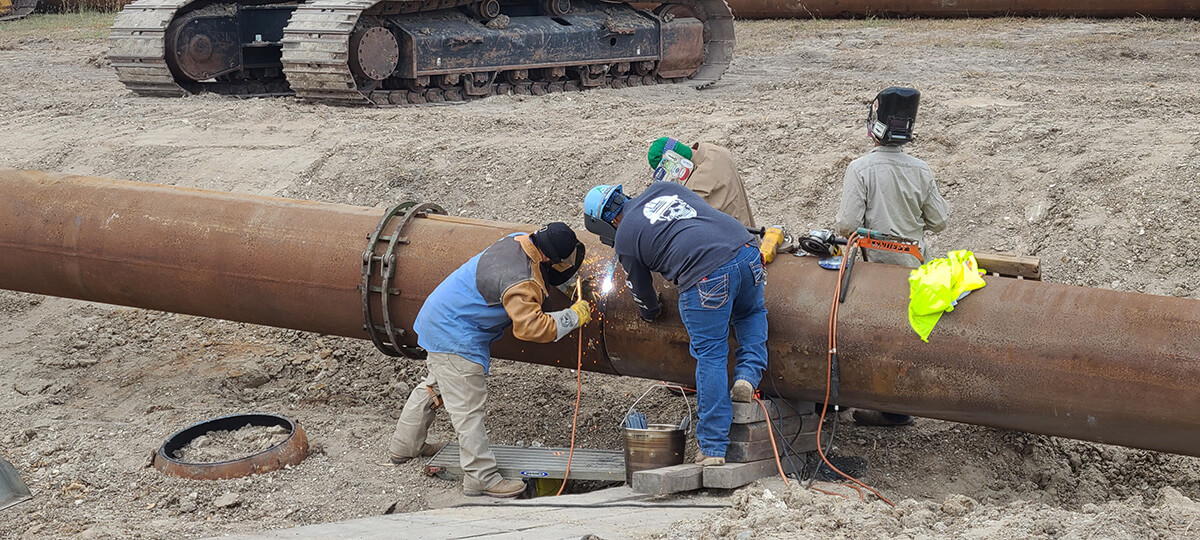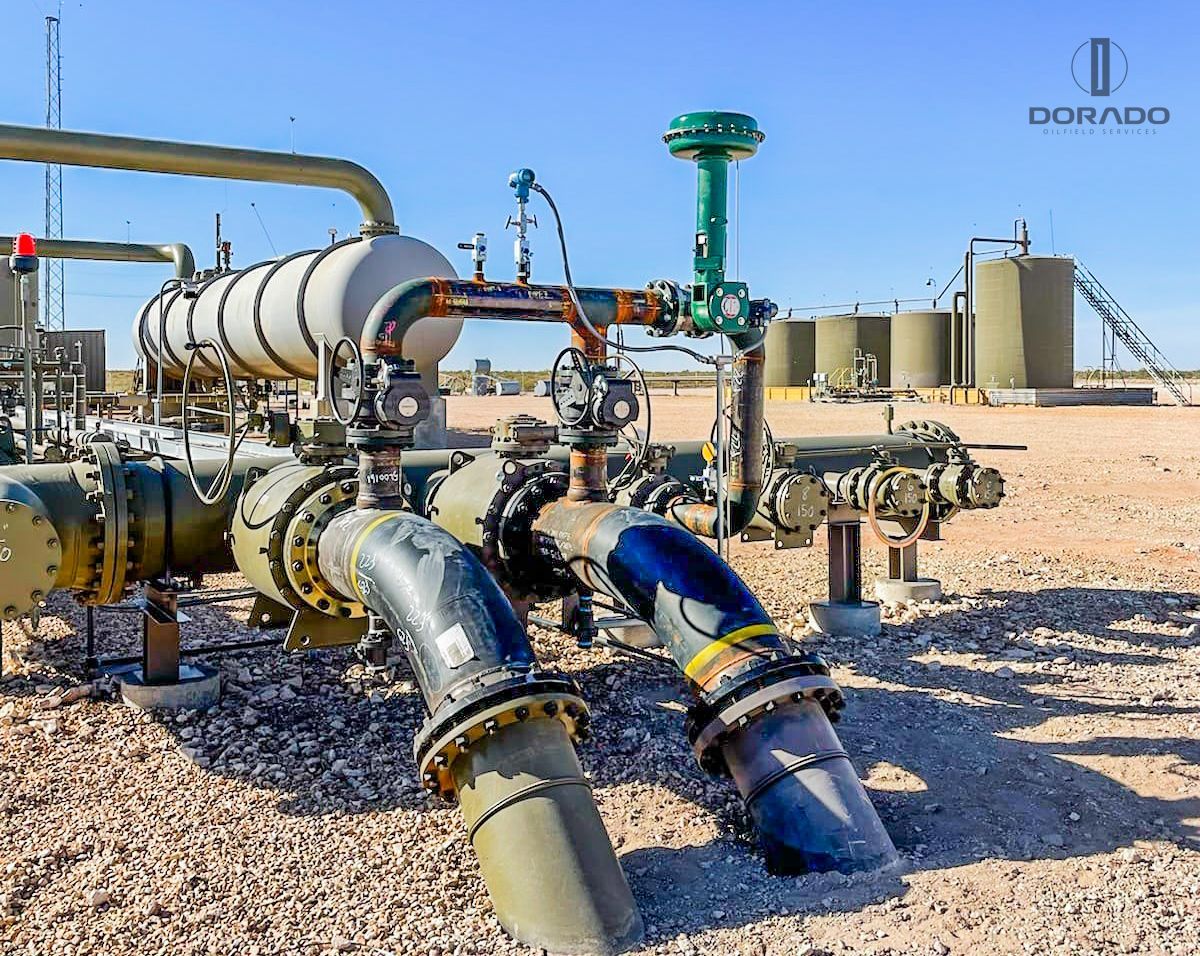Pipeline Construction Services: Warranties, Guarantees, and Quality Assurance
Wiki Article
The Essential Overview to Recognizing Pipeline Construction Providers and Their Value
Pipeline Construction services are fundamental to the transportation of essential sources such as gas, water, and oil. These services include precise planning and implementation, sticking to strict safety and security and ecological requirements. As the industry adapts to modern-day obstacles, understanding its effects and elements becomes progressively essential. What elements contribute to the growing relevance of these services in today's economy? The following areas will check out these vital aspects.Overview of Pipeline Construction Providers
Pipeline Construction solutions encompass a variety of tasks important for the installment and upkeep of pipes made use of to carry numerous substances, consisting of water, oil, and gas. These solutions are important for guaranteeing the secure and effective motion of resources from one place to an additional. The process commonly begins with detailed planning and design, which takes into consideration regulatory needs, environmental considerations, and logistical obstacles.Once planning is complete, excavation and grading of the land are conducted to prepare the website for Pipeline installation. This is followed by the real laying of the pipes, which entails welding or signing up with areas together to produce a continuous circulation path. After installation, extensive testing is executed to ensure stability and safety and security. Upkeep services are also supplied to attend to any kind of issues that may occur gradually. Overall, Pipeline Construction services play a critical function in sustaining infrastructure for energy and water circulation.
Key Components of Pipeline Construction
An effective Pipeline Construction job depends on numerous key elements that assure the effective and risk-free setup of the Pipeline system. Detailed site assessments are vital, as they determine the ecological and geographical aspects that might affect Construction. Next, the option of ideal products, such as pipes and fittings, is vital for protecting sturdiness and compatibility with the delivered compounds.Moreover, progressed Construction methods, including trenchless technology and directional exploration, improve efficiency and minimize ecological impact. Efficient task administration is another essential element, coordinating labor, devices, and timelines to meet task goals.
In addition, communication amongst stakeholders, including designers, professionals, and local authorities, assurances alignment on task specs and needs. Detailed top quality control procedures throughout the Construction process make sure conformity with sector requirements and take full advantage of the Pipeline's functional life-span. Jointly, these parts create the foundation of a successful Pipeline Construction task.
Security Requirements and Laws in Pipeline Construction

Governing bodies, such as the Occupational Safety and Health Administration (OSHA) and the Pipeline and Hazardous Materials Security Management (PHMSA), stated certain needs that control Construction practices. These include protocols for equipment use, worker training, and emergency reaction procedures. By executing these requirements, Construction companies not only protect their employees but also secure public trust. Ultimately, strenuous safety and security actions add to the lasting success of Pipeline jobs, guaranteeing they satisfy both environmental and operational assumptions.
Ecological Factors To Consider in Pipeline Projects

Environmental considerations are integral to the preparation and execution of Pipeline projects. These tasks have to examine prospective impacts on environments, water sources, and neighborhood wildlife. Performing complete environmental influence evaluations (EIAs) is vital, enabling stakeholders to identify and minimize dangers before Construction starts.
Protecting delicate areas, such as environments and marshes, frequently requires executing details layout features or alternate routing to lessen disturbance. Additionally, Pipeline drivers are entrusted with establishing approaches for avoiding leaks and spills, which can have devastating impacts on the setting.
Engagement with regional neighborhoods is essential, as public issues can bring about project adjustments that boost environmental management. Compliance with policies established by environmental companies assures that projects satisfy sustainability criteria, fostering a balance between framework needs and eco-friendly preservation. Eventually, dealing with ecological considerations not just safeguards nature however additionally advertises neighborhood trust and task feasibility.
The Function of Modern Technology in Pipeline Construction
Innovation plays a vital function in modern-day Pipeline Construction, improving performance and precision. Advanced checking strategies enable precise preparation and execution, reducing environmental effect and job delays. Additionally, the integration of automation and robotics streamlines operations, decreasing labor expenses and boosting safety on Construction sites.Advanced Surveying Techniques
Advanced surveying techniques play an important role in the successful execution of Pipeline Construction projects. These methods leverage advanced innovation to ensure exact mapping and evaluation of the terrain where pipes will be mounted. Strategies such as Geographic Info Systems (GIS), LiDAR (Light Discovery and Ranging), and 3D modeling allow engineers to envision and examine the landscape, identifying environmental concerns and prospective barriers. By making use of these innovative tools, teams can improve accuracy in placing and alignment, greatly find this lowering the danger of errors throughout Construction. Furthermore, real-time information collection enables for immediate modifications and informed decision-making throughout the job lifecycle. Ultimately, these checking developments add to improved effectiveness, safety, and sustainability in Pipeline Construction efforts.Automation and Robotics

Economic Influence of Pipeline Infrastructure
Pipeline infrastructure plays an essential function in shaping local economies and promoting trade. By giving a trustworthy methods of carrying oil, gas, and various other commodities, pipelines minimize transport costs and improve supply chain performance. This framework attracts investment, promotes work creation, and fosters economic development in bordering locations.The Construction and upkeep of pipes add considerably to local economic climates, producing countless employment possibilities in various industries, from engineering to labor. The influx of tasks typically causes raised investing in neighborhood organizations, further bolstering economic activity.
Additionally, pipelines enhance energy safety and security by guaranteeing a stable supply of resources, which is vital for industrial procedures and household demands. As areas end up being interconnected through Pipeline networks, they get to more comprehensive markets, raising competition and financial durability. The financial effect of Pipeline framework is diverse, influencing both prompt regional economies and more comprehensive regional development.
Future Fads in Pipeline Construction Solutions
The future of Pipeline Construction solutions is progressing in reaction to technical innovations, regulative changes, and expanding environmental factors to consider. Developments such as robotics and drones are enhancing inspection and upkeep procedures, improving safety and security and effectiveness. Automation is positioned to decrease labor prices and enhance accuracy in Construction operations. Furthermore, the raising emphasis on sustainability is motivating companies to embrace environmentally friendly products and practices, lining up with international efforts to lower carbon footprints.Regulative structures are also adapting to attend to environmental impacts, promoting greater transparency and liability in Pipeline projects. The integration of wise modern technologies, including real-time tracking systems, is anticipated to enhance the reliability and performance of Pipeline networks. As power needs shift towards eco-friendly sources, Pipeline Construction solutions will likely see a surge in tasks connected to biofuels and hydrogen transportation. Overall, these fads show a transformative period for the Pipeline Construction market, concentrated on innovation and sustainability.
Frequently Asked Concerns
What Kinds of Pipelines Are Generally Constructed?
Different kinds of pipelines are commonly constructed, consisting of oil, sewage, gas, and water pipes - Pipeline Construction Services. Each offers distinctive purposes, helping with the transport of necessary sources throughout regions while adhering to safety and environmental regulationsThe length of time Does a Regular Pipeline Task Take?
webpage The period of a regular Pipeline task differs considerably, commonly ranging from several months to a few years. Factors affecting this timeline consist of project complexity, governing approvals, and environmental considerations that need to be attended to.That Regulates Pipeline Construction Companies?
Pipeline Construction companies are controlled by various federal, state, and neighborhood companies, consisting of the Pipeline and Hazardous Materials Safety And Security Administration (PHMSA) and state public utility payments, making sure conformity with safety and security and environmental standards throughout the Construction procedure.What Prevail Materials Made Use Of in Pipeline Construction?
Typical products utilized in Pipeline Construction consist of polyethylene, steel, and pvc. Each product uses distinct benefits such as adaptability, resistance, and sturdiness to corrosion, making them appropriate for different applications in moving gases and liquids.
How Are Pipeline Construction Expenses Approximated?
Pipeline Construction costs are approximated by assessing factors such as material expenditures, labor prices, project complexity, ecological factors to consider, and regulative demands (Pipeline Construction Services). Precise price evaluation assurances reliable budgeting and job planning throughout the Construction processPipeline Construction services include a range of activities essential for the installment and maintenance of pipes utilized to transfer different compounds, consisting of gas, oil, and water. A successful Pipeline Construction project counts on a number of essential components that assure the efficient and safe installment of the Pipeline system. Advanced checking strategies play a necessary function in the effective execution of Pipeline Construction tasks. Various kinds of pipelines are generally built, consisting of oil, water, sewage, and gas pipes. Pipeline Construction costs are estimated by assessing elements such as product expenses, labor rates, task complexity, ecological considerations, and governing requirements.
Report this wiki page